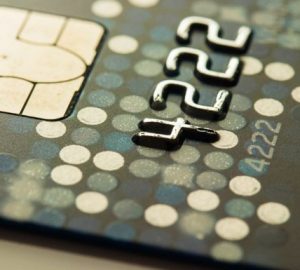How and why to check credit scores for your teens

Tips to start a credit check for your teen.
When your teen turns 16, you may want to see if he or she has a credit report. This move is mostly a precaution. If there are any mistakes or fraudulent accounts listed on your teen’s credit file, you’ll have plenty of time to make corrections before your student applies for college financial aid or tries to rent an apartment.
There are three possible outcomes when you check your teen’s credit history. You may find that:
- Your teen has a legitimate credit file
Even if your teen has never taken out a loan or owned a financial product, it’s still possible that they have a credit file. How? If you listed your teen as an authorized user or joint account holder on a credit card, for instance, that could trigger a credit report in your teen’s name. This is a legitimate reason for your teen to have a credit history. Simply make sure the information listed on the credit report is accurate. - Your teen has no credit history
Relax. You don’t have to do anything else right now. Your teen can build a healthy credit history in the future by paying rent and utilities on time or opening a credit card account once they have a reliable income. - Your teen has a credit file due to fraud
Your student could have accounts listed on a credit history if they have fallen victim to identity theft. This could mean someone opened credit cards, loans, and other debts in your son or daughter’s name and didn’t pay them off. If this is the case, it will require some work on your part to clean up the mess.
Keep in mind that there’s no designated age for officially establishing a credit file, according to the Consumer Financial Protection Bureau (CFPB). In fact, the Federal Trade Commission (FTC) recommends that you check a very young child’s credit file if you suspect someone has used his or her information fraudulently.
You may also want to look at the report with your child as a teaching moment for how to review their report in the future.
How to request copies of your teen’s files
As a parent or legal guardian, you have a right to see copies of your teen’s credit files. But to gain access to the report, you’ll need to provide the credit reporting agencies with proof of your identity and your relationship to your student. This can be a bit of a hassle, but it’s an important safeguard.
According to the FTC, you may need to provide copies of:
- Your student’s birth certificate, with parent names listed
- Your student’s official Social Security card
- Your government-issued identification card, such as your driver’s license
- Documents proving that you’re the legal guardian, if you’re not a parent
- Proof of your address, such as a utility bill
As a legal guardian, you can request a free copy of your child’s credit report by completing the request form on annualcreditreport.com. This will help you access one free credit report per year from each of the three credit reporting agencies: Equifax, Experian, and TransUnion. It’s up to you if you’d like to request one credit file at a time or all three at once.
What to do if you spot problems
If you see mistakes on your student’s credit report (wrong address or name spelling, for example), follow each agency’s instructions for correcting them. The same holds true if you see financial accounts on your student’s report that you know aren’t theirs. If that’s the case, you may also want to put a fraud alert on your son or daughter’s three credit files and even consider freezing their credit.
Although the process can be time-consuming and a bit unnerving, you’re better off finding and fixing credit problems now. Once your teen is in college, their financial picture gets more complicated.




